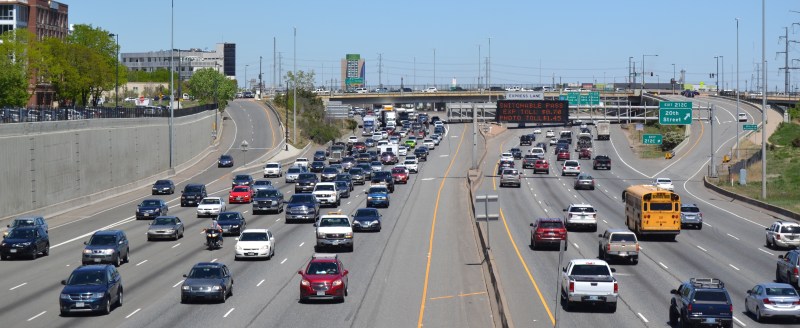Denver Can’t Rely on State Lawmakers to Fund Transportation the City Needs

If there’s one lesson that Denverites hoping for a 21st-century transportation system should take away from the current state legislative session, it’s this: No one in the capitol is coming to the rescue.
The legislation coming out of the state legislature would allow money that’s supposedly reserved for transit to go toward sound walls on Interstate highways. The bill would also make it much, much harder to toll highway lanes, precluding efforts to cut traffic and reduce subsidies for driving.
Senate Bill 1 would hand $500 million to the Colorado Department of Transportation immediately to spend “only on new highway construction projects.” The bill would ensure $250 million annually for CDOT’s transportation agenda, which consists almost entirely of highway projects.
All 35 state senators are fine with these provisions and approved SB1 unanimously last month.
While Denver aims to shift trips from driving to transit, biking, and walking, these measures in the bill take the state in the opposite direction.
It’s clear that any transportation funding package will be more about pleasing constituencies who live a stone’s throw from Utah, Oklahoma, and Kansas than about solving Denver’s problems as a growing city.
Policy favorable to Denver will always get weakened in the statehouse to satisfy rural interests. But the problem goes beyond that. State senators Irene Aguilar, Lucia Guzman, Angela Williams, Lois Court, and Tim Neville all rep the Mile High City — and all voted for SB 1.
The best Denver can hope for in this session is to stop this version of the legislation in the House.
SB 1 hasn’t had a hearing in the House yet, but influential business groups just put their weight behind it.
Meanwhile, Bicycle Colorado, WalkDenver, BikeDenver, and the Southwestern Energy Efficiency Project have come out against SB1 and are asking their members to demand dedicated funding for transit, biking, and walking, as well as local control of transportation funds so cities and towns, not highway-obsessed CDOT, get more say.
The other route to raise transportation funds runs through the ballot box. The Denver Metro Chamber of Commerce is leading a campaign to generate revenue from a sales tax increase, currently weighing five options that would bring in anywhere between $350 million and $1 billion annually for Colorado transportation [PDF]. If a ballot measure passes, 15 percent would be reserved for transit, biking, and walking, and 40 percent would be split evenly between cities and counties.
Still, most of that money will be spread out across the state, much of it going toward roads and not transit. It’s a far cry from the recent ballot measures in metro Seattle and Los Angeles, which raised $54 billion and $120 billion, respectively, with an emphasis on transit.
If Denver wants a transportation system that makes a city work well — with good transit, biking, and walking infrastructure — it will have to raise the money itself instead of relying on a state that still sees driving everywhere as the answer.


